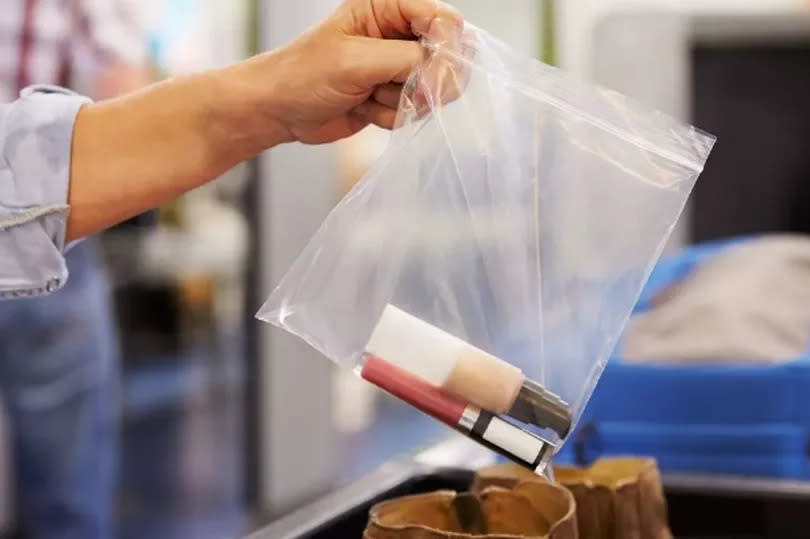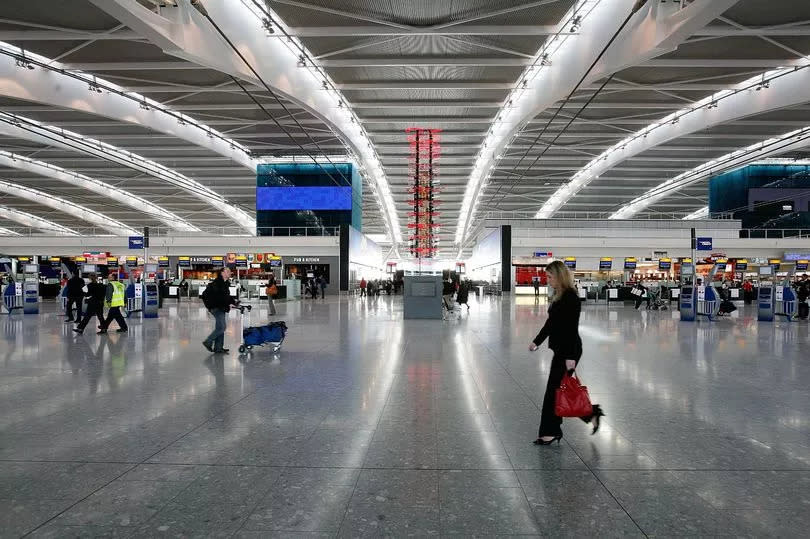Third UK airport scraps 100ml liquid rule for hand luggage as more to follow

A third UK airport has now lifted hand luggage restrictions on laptops and liquids in time for summer.
Aberdeen International Airport is the latest airport to remove the requirement for passengers to limit liquids in hand luggage to 100ml and place them in clear plastic bags. The move follows the introduction of new scanners across the country, although the government has expressed frustration at missed deadlines for their implementation this summer.
Aberdeen International Airport now allows passengers to keep laptops and liquids in their bags when going through security. It follows similar changes at Teesside and London City airports, where queue times have been reduced by 50 per cent due to the elimination of manual bag checks.
The installation of Next Generation Security Checkpoint (NGSC) Scanners means that the previous 100ml liquid rule is no longer applicable, with departing passengers now able to carry bottles containing up to two litres in their hand luggage. Passengers will also be able to keep electrical items like laptops in their carry-on bags when they pass through the new 3D scanners.
However, earlier this month it was revealed that the planned nationwide relaxation of rules around airline passengers carrying liquids in hand luggage has been delayed by a year. The government has granted extensions to several large UK airports unable to meet its June 1 deadline to fully install the new scanning technology.
For airports which have not yet implemented the new scanners, the 100ml limit remains in place and containers must be placed in clear plastic bags.
The initial deadline for most major airports to implement new scanners was set for December 2022, an agreement reached in August 2019 by then-prime minister Boris Johnson. However, Covid-19 triggered drastic disruptions within the aviation sector and in December 2022, Transport Secretary Mark Harper extended the deadline to June 1 2024.
In addition to this, several airport-specific deadline extensions of up to 12 months have been granted by ministers, expectedly providing ample time for all the necessary work completion. Due to security concerns, the Department for Transport did not release any information on the current status at each airport.

Mr Harper commented: "These cutting-edge scanners will make air travel safer and easier for passengers by strengthening security even further. The UK is leading the world with its rollout of this technology, but it's important we give those airports yet to meet the deadline a second chance to get the job done. Until they do, passengers should continue to check before travelling."
Heathrow Airport has forecasted that all its security lanes will have new scanners by this summer whilst Gatwick aims to complete the programme by March next year. Manchester Airports Group, managing Manchester, East Midlands, and Stansted airports, estimates their scanners will be fully deployed by 2025.
London City made history as the UK's first major airport to implement the new scanners for all passengers in April last year, following the introduction of airport security restrictions for liquids in 2006 due to a thwarted terror plot that aimed to detonate planes flying from London to the US with homemade liquid explosives.
Aberdeen Airport Security Manager William Wallace said: "We are delighted to have the NGSC scanners operational at Aberdeen. We are well ahead of the deadline set by the Government thanks to all the hard work from our staff and contractors."
He also advised passengers on the significant update: "This is one of the biggest changes in airport security so we would ask passengers to be prepared for this new process and to have patience as we enter the biggest change in aviation security in nearly two decades."
Travellers were reminded that different airports might have varying regulations. Mr Wallace further cautioned: "It is important to check what the process is at both your departing airport and any other airports you will travel through or from before you set off, as this may be different."

 Yahoo News
Yahoo News 
